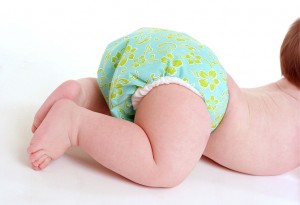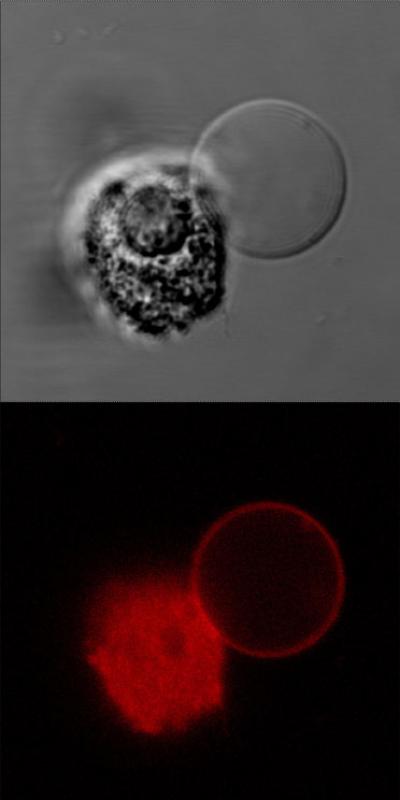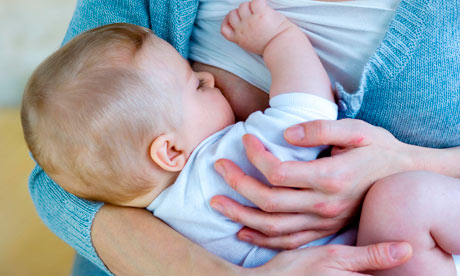When becoming a new parent there are many choices to be made, diapering is one of them. Cloth diapers aren't what they use to be. Long gone are the days of safety pins and burp cloths! Now they are designer ensambles. There are hybrids in which you can use cloth or a biodegradable/disposable insert. There are some with Velcro or snap closures. They come in different sizes or an All-in-one that adjusts to the size of your baby. Oh, and if you want color the possibilities are endless.

Think about it... your baby is in a diaper, day in and day out, for the most part of two years! What do want lying that close to your babies skin? What is in disposable diapers vs. cloth? Plastics, chemicals, sodium polyacrylate (absorbent gel) and dyes are in disposable diapers and may pose a risk to your infants health.
The following is an excerpt from the linked article.
http://www.thenewparentsguide.com/diapers.htm
"Some concerns about disposable diapers have been about dyes, sodium polyacrylate (the super absorbent gel), and dioxin, which is a by-product of bleaching paper. Sodium polyacrylate has been linked in the past to toxic shock syndrome, allergic reactions and is very harmful and potentially lethal to pets. Some dyes and dioxin according to the EPA (Environmental Protection Agency) is known to cause damage to the central nervous system, kidneys, and liver. The (FDA) Food & Drug Administration has received reports that fragrances in disposables caused headaches, dizziness and rashes. Problems reported to the Consumer Protection Agency regarding disposables include, chemical burns, noxious chemical and insecticide odors, babies pulling disposables apart and putting pieces of plastic into their noses and mouth, choking on tab papers and linings, plastic melting onto the skin, and ink staining the skin. Plastic tabs can also tear skin if the diaper is not properly put on the baby."

Also be diligent about what cloth diapers may be exposing your baby to. Is the cloth made from bamboo or cotton? Is it organic? Do you place a liner in between your baby's skin and the diaper to collect solids?
I have also read that there are new studies linking male infertility to exposure to disposable diapers as they contain heat more efficiently thus raising the temperature of your little man's testicles! I know ... Alarming!

What about the effect disposable diapers and wipes have on the environment. Diapers supposedly take 500+ years to biodegrade in our landfills. Consider an infant using about 6 diapers a day, sometimes more, for two+ years. That's approximately 2,190 diapers a year going out into the environment! Outrageous! Think about the money saved if you don't have to buy all of those diapers :)

Has anyone read the diaper dilemma published by Mothering Magazine? (I have searched for a link but I believe there is a copyright on it. I have a downloaded copy but unable to attach it to the blog. If you are interested in reading it email me and I will send you a copy). Its a lengthy one but a very good resource for those of you who have decided to use cloth diapers.

We decided to use them, prior to Paige being born, and promote their use for the health costs and for the future of our environment. The costs saved by using cloth diapers for all of our future children also weighed in on our decision :)
We initially used BumGenius
http://www.bumgenius.com/, which I still believe is a great product, but we have since switched to gDiapers
http://www.gdiapers.com/. The article discuss the use of the gDiaper biodegradable inserts and we have since stopped using them. I must admit, I appreciated the convenience of them, but agree that using cloth is much better on the environment and our wallets. I also have several friends using Flips
http://www.flipdiapers.com/ and they come highly recommended. There are many more brands available and here is a great resource full of mom generated forums,
http://www.diaperswappers.com/

Overall, cloth diapers aren't what they used to be and can be as convenient as disposable. Plus your not contributing to the overwhelming pollution thus creating a better future for your children and their children, To me it's a no brainer and it's well worth the investment knowing your baby is a green baby!











